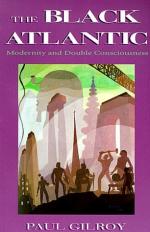
|
| Name: _________________________ | Period: ___________________ |
This quiz consists of 5 multiple choice and 5 short answer questions through Chapter 4, Cheer the Weary Traveller, W.E.B. Du Bois, Germany and the Politics of (Dis)placement.
Multiple Choice Questions
1. What does Gilroy say the language of ethnic opposition typically does?
(a) Accommodates numerous racial experiences.
(b) Obscures racial differences.
(c) Provides a false sense of power and identity.
(d) Empowers oppressed minorities.
2. The first mode of double consciousness is particular to whom?
(a) Blacks generally.
(b) Free blacks.
(c) Slavers.
(d) Slaves.
3. How does Gilroy characterize defenders of modernity's attitude toward the African diaspora?
(a) Excessively interested.
(b) Uninterested.
(c) Primarily interested.
(d) Casually interested.
4. What cultural work does Gilroy say music has performed?
(a) Keeping the terror of slavery alive.
(b) Articulating political unrest.
(c) Numbing people to modern atrocities.
(d) Assuaging political unrest.
5. How does Gilroy characterize the modern self?
(a) Holistic.
(b) Temporary.
(c) Fractured.
(d) Contingent.
Short Answer Questions
1. Who does Gilroy say DuBois was analyzing in The Souls of Black Folk?
2. Whose challenges does Gilroy take up in the first section of the chapter?
3. What has been superseded by economic, social and cultural forces, according to Gilroy?
4. What feeling did DuBois see in the culture of diaspora blacks?
5. Why does Gilroy say that it is odd that music held this role?
|
This section contains 239 words (approx. 1 page at 300 words per page) |

|




